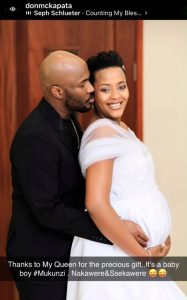Warri not Urhobo land, group dismissed ownership claims
The Itsekiri Historical Front has faulted claims that Warri is Urhobo land, describing it as a reckless invitation to breakdown of law and order and war.
The group, in a statement, said the matter of Warri’s ownership had been resolved in court, and the Supreme Court had passed a verdict that anyone who was not an itsekiri in Warri was a tenant to the itsekiri people.
Chairman of the group, Lily-white O. Esigbone; Secretary of the group, Mr Silva Maku; Historian, Mr Oritsegbubemi Edema; and Public Relations Officer, Mr. Oritseweyiologbara Kwame, warned that they would resist any attempt to distort history.
They also debunked assertions that Warri refinery was on Urhobo land, saying Ubeji, Ifie, Aja-Etan and Ijala, in conjunction with the Itsekiriland trust were the communities that leased the lands of the Warri refinery to the Federal Government.
According to them, “another ludicrous assertion made by this individual is that the Urhobo are the largest producers of oil and gas in Delta State, claiming they account for 50 per cent of the state’s oil and gas production and possess more oil resources than the combined totals of Ondo, Imo, and Edo states. We previously addressed these outrageous claims months ago.”
The statement reads: “When it comes to addressing the barrage of false statements and misleading information from Urhobo leaders, one cannot help but wonder whether these individuals are at least in a state of sobriety—if not outright intoxication—when they typed their nonsensical claims or spoke on video. The sheer absurdity of their assertions often leaves one questioning their grasp on reality.
“This is precisely why, whenever we hear Urhobo leaders making grandiose claims about their supposed ownership of Warri, or presenting arguments that even a five-year-old child would find laughable, we are immediately reminded of how Judge Maxwell characterised Urhobo leaders in court during their futile attempts to assert ownership over Warri. Their attempts are not only misguided but also reflect a profound disconnect from the historical and cultural realities of the region.
“It is astonishing how they continue to propagate such baseless narratives, seemingly oblivious to the facts that contradict their claims. Judge T.D. Maxwell’s assessment of Urhobo witnesses in his 1926 court still resonates today: “They come to this court in the presence of a series of utterly illiterate peasant witnesses. Of the first three, each of them seemed to me merely senile and l accepted (not without hesitation) their counsel’s assertion that they were sober or at least normal in the witness box. Each of the others seemed to me to be abysmally stupid as well as ignorant.” – harsh words that unfortunately remain relevant nearly a century later.
“Should we really be questioning whether these so-called Urhobo leaders are actually educated, despite their claims of having the highest universities in Delta State? What they have consistently demonstrated is nothing short of pure illiteracy and ignorance, which is utterly disgraceful for individuals in their positions.
“The claim that Warri is urhobo land: the audacity to include Warri, a territory that rightfully belongs to the Itsekiri people, into your state is nothing less than a reckless invitation to breakdown of law and order and war. This kind of action will undoubtedly lead to severe consequences that will not be taken lightly.
Warri is Itsekiri land, and only someone completely out of touch—perhaps even intoxicated—would dare to sit comfortably in Abuja and make such unfounded claims. The matter of Warri’s ownership has already been settled in court, and the Supreme Court has made its ruling clear, anyone who isn’t an itsekiri in Warri is a tenant to the itsekiri people.
“The Itsekiri won both possessory and radical ownership to almost all the lands in Warri – except the Okumagba avenue, where Okumagba won the possessory right, while the radical title still resides with the Olu. SC/309/74 was won by the Okumagba family against the Itsekiri. But it is clear that they won only a possessory title – hear the Supreme Court..
“The averments in the Plaintiff amended statement of claim was based on traditional evidence and partly on acts of ownership. The averments of the defendants’ statement of defense and evidence give a completely different version of the traditional evidence. The defendants also testified as to their acts of ownership of land in dispute. It must be pointed out at this stage that the defendants are not counterclaim for title to land (SC 309/74). Emphasis for clarity!
“Since Okumagba did not counter claim to title, it means the title to the land still remains with the Olu, while the Okumagba family had only the possessory title. All the other cases within Warri – W/44/1941; SC 93/98, Suit No. W/41/57, Suit No. W/121/57, Suit No. W/3/1949 and so many others gave both possessory and radical title to the Olu of Warri.
“Thus, from the legions of litigation, only the Itsekiri had both radial and possessory ownership to all the lands in the Warri minus Okumagba layout, where Olu has the radical title, but the Urhobo enclave in Idimi Sobo had the possessry rights. The mere existence of a kingdom established within our lands and territories does not grant them ownership of the land. The Agbassa lands rightfully belong to the Olu of Warri and the Itsekiri people, and that is an undeniable fact.
“This marks the second occasion in the entire history of the Agbarah migrants in Warri that they have received a staff of office from the Delta State government or any other government entity in Nigeria, which is a significant point to consider. The so-called Idimi-usobo Kingdom, now misnamed as Okere Urhobo, is merely a quarter within the Okere Community, Warri kingdom, and we refuse to waste our valuable time discussing it further.
“The reality is that the Urhobos residing in Warri are nothing more than customary tenants to the Itsekiris, and no amount of deceitful tactics or threats of violence can alter this truth. The attempt to incorporate Warri into your so-called “Urhobo state” must be immediately rescinded, as the Urhobos have no rightful claim to land in Warri, which is firmly Itsekiri territory. In 1864, a European traveler noted, ‘At Warri, we were within one day’s row of the Sobo people’ (10 Years’ Wanderings among the Ethiopians, p. 6r). This suggests that if they were in Warri and only a day’s journey away from the Sobo people, it indicates that the Urhobo people were not located in the current Warri or its surrounding region. Therefore, how can Warri be considered Urhobo land? Historical maps consistently demonstrate that Warri is, in fact, Itsekiri land.
“The claim that urhobo are the 4th largest ethnic group in Nigeria: The assertion that the Urhobo people are among the largest ethnic groups in Nigeria is not only utterly ridiculous but also a product of delusional thinking, akin to a group of intoxicated individuals haphazardly editing Wikipedia in a desperate attempt to inflate their own population figures. The reality is that the Urhobo do not even come close to being in the top 10 largest ethnic groups in Nigeria.”
The post Warri not Urhobo land, group dismissed ownership claims appeared first on Vanguard News.





